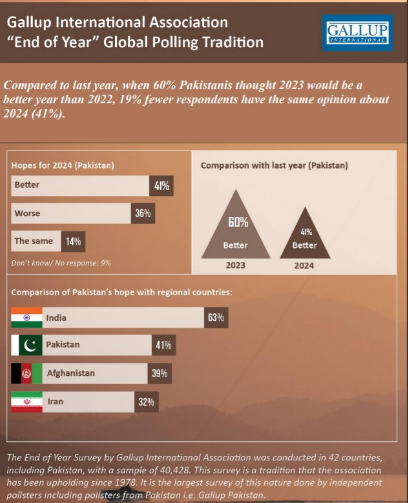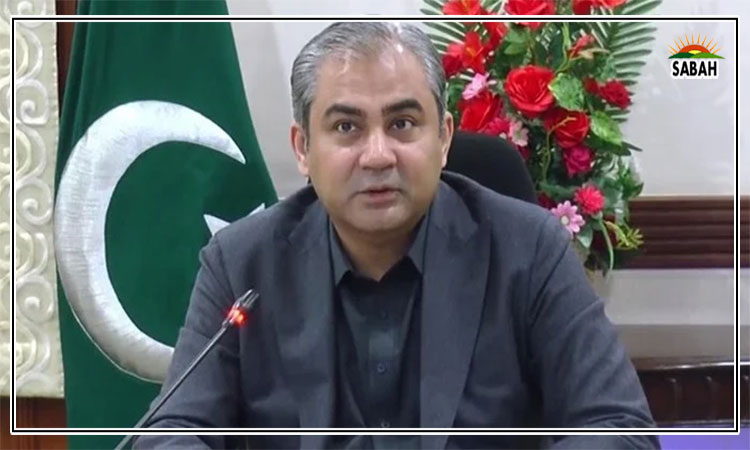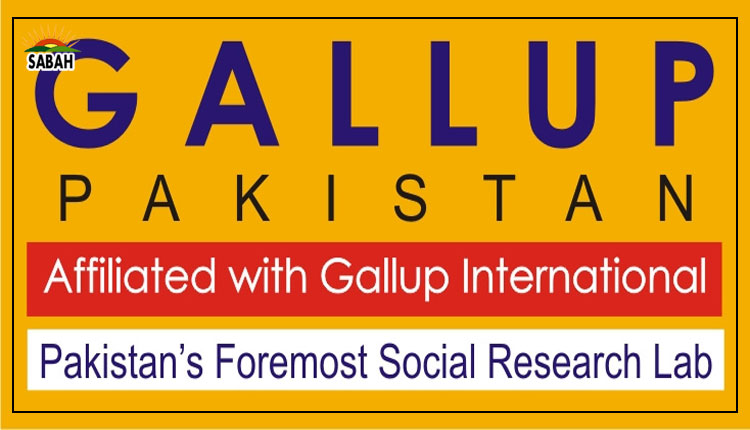More people optimistic 41% than pessimistic 36% about Pakistan’s future: Gallup Int’l Association Survey
ISLAMABAD, Jan 03 (SABAH): The End of Year Survey by Gallup International Association was conducted in 42 countries with a sample of 40,428. This survey is a tradition that the association has been upholding since 1978.

These are some of the key findings of the survey:
1. More people optimistic (41%) than pessimistic (36%) about Pakistan’s future.
2. Compared to last year, hope for the future has decreased by 19%.
3. Compared to the regional countries participating in the survey, including India. Afghanistan and Iran, Pakistan comes second in terms of optimism for the upcoming year.
Compared to last year, when 60% Pakistanis thought 2023 would be a
better year than 2022, 19% fewer respondents have the same opinion about 2024 (41%).
When Pakistani respondents were asked “As far as you are concerned, do you think that 2024 will be better, worse or the same as 2023?”, 41% of them were hopeful that 2024 would be a better year than 2023, while only 36% thought it would be worse. According to 14% of them, 2024 would be the same at 2023.
Compared to last year, when 60% Pakistanis thought 2023 would be a better year than 2022, 19% fewer respondents have the same opinion about 2024. 16% more Pakistanis think 2024 would be a worse year compared to 2023, than those who thought 2023 would be worse than
2022.
A snapshot of results from the South-Asia reveals that Pakistani respondents were the second most optimistic, the first being those from India, where 63% thought that 2024 would be better than 2023. Following Pakistan were Afghanistan and Iran, where 39% and 32%, respectively, thought the next year would turn out better than the current one.
The net hope score, which is calculated by subtracting the optimists from the pessimists, revealed that while 41% Pakistanis thought 2024 would be better than 2023, the 36% who thought it would be worse resulted in Pakistan having the lowest net score in South Asia. The
net score for Pakistan was +5, followed by +6 for Iran. Both of these are lower than the global average of +13. Afghanistan and India, with net scores of +47 each, show a lot higher optimism and lower pessimism compared to the rest of the world.
The Gallup Pakistan Digital Analytics website hosts the responses to the same question asked over the period of 1977-2021. When participants were asked, “As far as you are concerned, do you think that next year will be better, worse or the same as the current year?”, almost 43% Pakistani and 54% Indian respondents thought 2022 would be better than 2021. Apart from the late 90s, where there were most optimist Pakistanis than Indians, the proportion of Indians who
thought the upcoming year would be better than the last, has been higher.
Within Pakistan, males have generally remained more hopeful for the upcoming years compared to females. 43% females thought 2021 would be a better year compared to 2020, while 50% males expressed this opinion. Only in 2016 and 2018 did female optimism reach higher than male.
Comparing the optimism of Pakistan’s lowest income quintile in 2020 with that of India, United States and United Kingdom reveals that after the UK (36%), Pakistan low-income quintile was the least optimistic about the next year (41%). India was the highest at 83%, followed by the US at 50%.
The Gallup International End of Year Survey (EoY) is an annual tradition initiated by and designed under the chairmanship of Dr. George Gallup in 1977. The survey is conducted every year since then. This year it was carried out in 41 countries around the world.
Sample Size and Mode of Fieldwork:
A total of 40,428 persons were interviewed globally. In each country a representative sample of around 1000 men and women was interviewed during October-December 2023 either face to face, via telephone or online. The margin of error for the survey is between +3-5% at 95% confidence level.
Gallup Pakistan is not related to Gallup Inc. headquartered in Washington D.C. USA. We require that our surveys be credited fully as Gallup Pakistan (not Gallup or Gallup Poll). We disclaim any responsibility for surveys pertaining to Pakistani public opinion except those carried out by Gallup Pakistan, the Pakistani affiliate of Gallup International Association.












